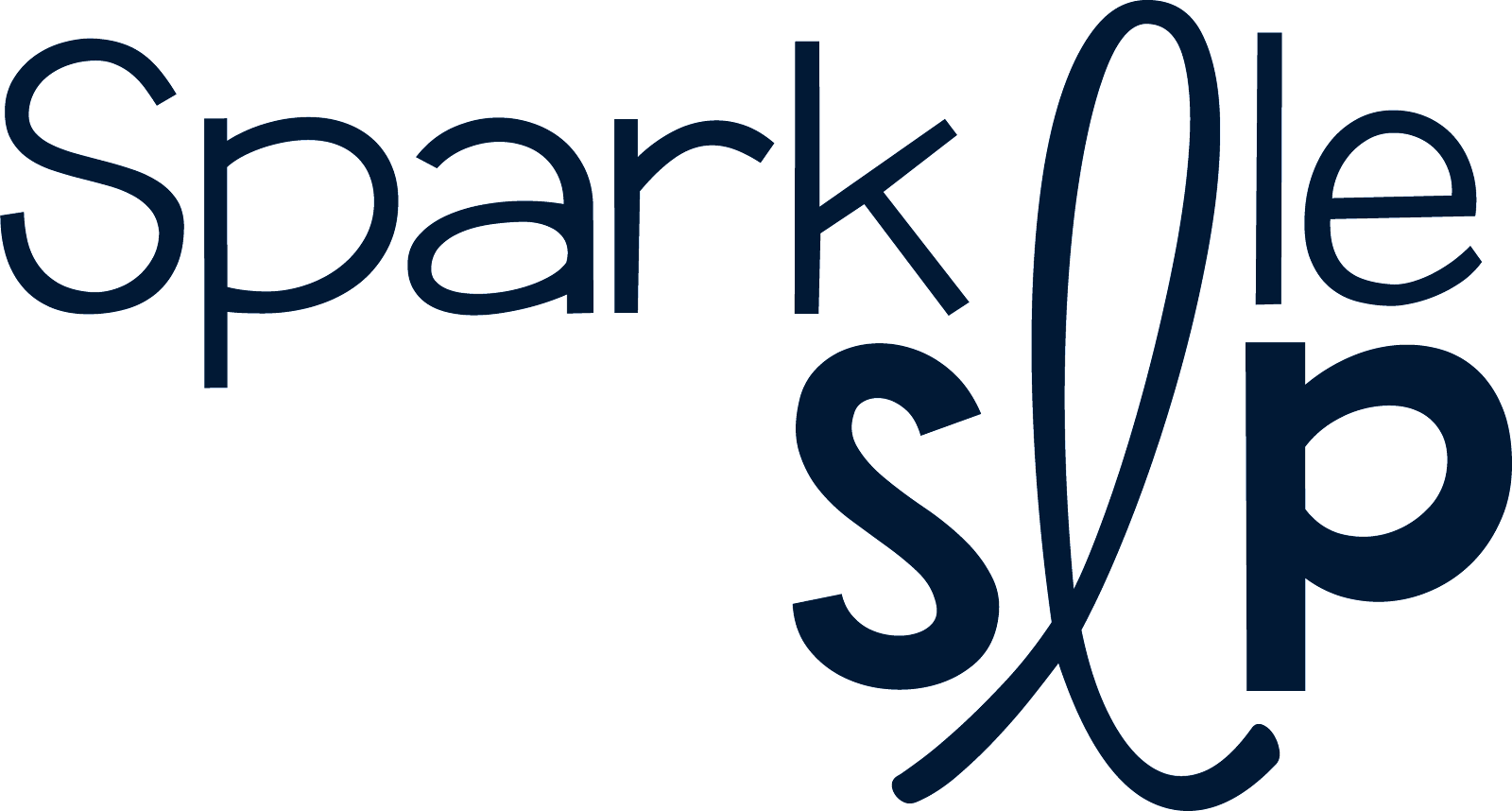The Frenzied SLPs are back this month to talk about Speech/Language Screeners. I can proudly say that I have finished screening over 100 bright-eyed kindergarteners as well as about 15 students that received interventions during last school year. I am all screened out, but grateful for all the screening tools available. Remember, follow The Frenzied SLPs on Facebook so you won't miss the next installment in our linky series.
Without further delay, I bring to you my screening regimen.
Kindergarten Screening
I use the Joliet 3-Minute Speech and Language Screen. While this screener does not even appear to be in print any longer, I'm here to tell you it still provides me plenty of screening information. A receptive vocabulary section is included as well as a sentence repetition task. A little spontaneous sample and observations of voice, fluency, and pragmatic language through conversation and I'm onto the next student in 3-7 minutes. The screening was originally made for K, 2nd, and 5th grade students.
During my screening time, if multiple sound errors are observed, I use a word repetition screener. The Articulation Screener provided within the Preschool Language Scale, Fifth Edition (PLS-5) is a favorite of mine, although I am not affiliated with the PLS-5.
Once I am able to screen all kindergarten students, I divide the screening forms into three piles. Most students pass the screening and are therefore moved into a file folder and into the cabinet. The other two piles are reserved for re-screens and monitoring. My re-screen pile is created for students that did not pass the screening in one or more areas and are likely moving toward a more in-depth screening as well as follow-up with the teacher and parents. Many of these students will likely receive interventions during the year. The final pile of students that will be monitored are kept within my screening folder. Teachers are notified of my list and asked to monitor the area(s) in which performance was borderline. Some students may be re-screened after the first semester, if warranted.
Screening for Grades 1-5
Articulation: I also use the Joliet 3-Minute Speech and Language Screen sentence repetition task for baseline/screening for any students with speech sound errors. Another favorite sentence repetition screener that I previously linked was no longer available when I wrote this current post. {Insert very sad face.} I am glad I have a hard copy in my possession; however, extremely disappointed that I cannot share it with you anymore. Time to start creating my own!
When I want to gain a more in-depth screening of articulation and phonology, I use the Articulation Test Center app. You can read about my review.
Language: Thanks to some amazing SLPs on TPT, I now have my go-to screeners for language. I am partial to both Nicole Allison's Curriculum-Based Language Assessments and Super Power Speech's Language Informal Assessments.
Documentation
When it comes to keeping track of screening results and sharing information with parents, I have found a few forms very handy.
Within this document, you can snag my Kindergarten Screening spreadsheet. I use this to notify teachers and keep a log for myself. I use this only for kindergarten since it is a mandated grade for screening all students. We have a suggested Documentation of Interventions Form as well as additional RtI Problem Solving Forms used within our district. I complete these for kindergarten students in which I initiate interventions.
For articulation, I will happily share this Articulation Screening Review Form that I absolutely LOVE! If I ever meet the author, I may give him/her a big bear hug, seriously!
That about does it. I'm off to work on my kindergarten spreadsheet and documentation of interventions forms now that my initial screenings are complete. Thanks for stopping by. I am anxious to learn some new speech/language screening tips through this linky. Don't forget to link up or comment below with your ideas!



.png)




